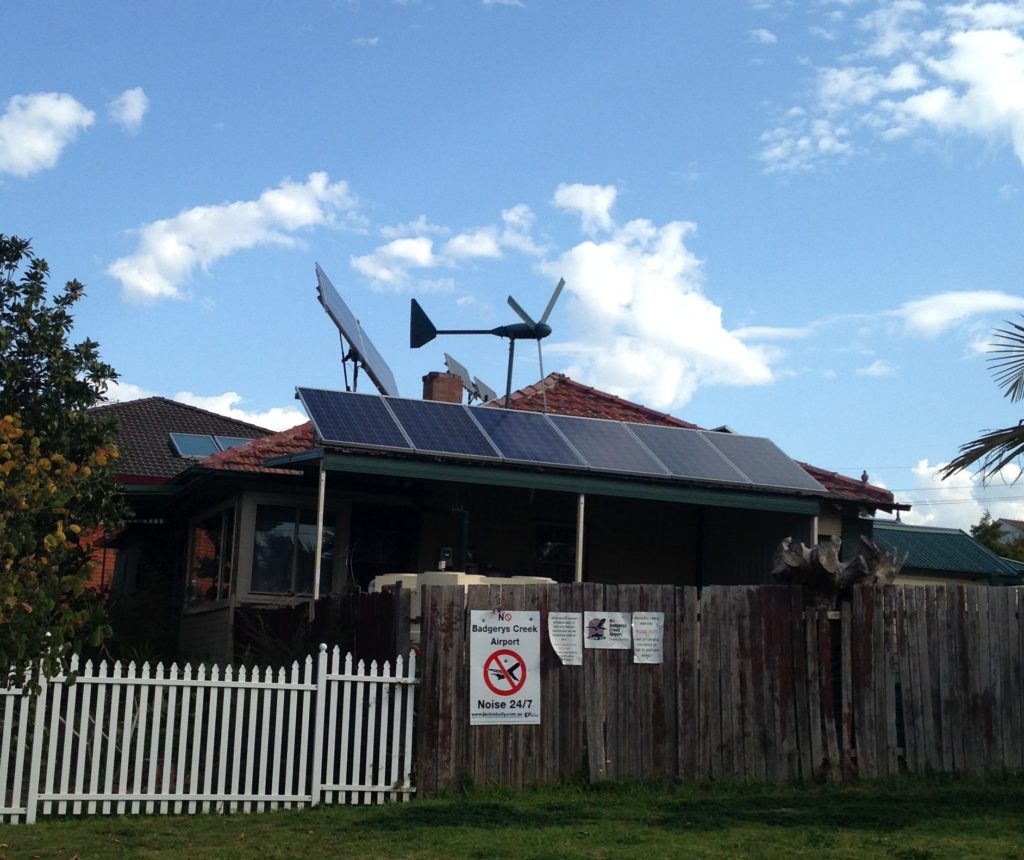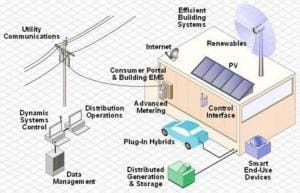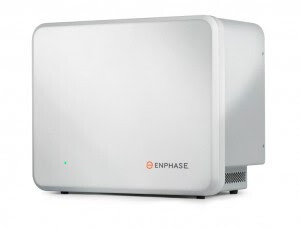There are now dozens of home battery storage product options to choose from on the Australian market. Prices are coming down quickly, and as electricity prices rise (as they are set to do in most states) batteries are beginning to look quite attractive. As a counterweight to our article about reasons to wait to install batteries, in this piece we’ve outlined seven arguments for installing them now.
 1. Reduce your electricity bills & avoid bill shock
1. Reduce your electricity bills & avoid bill shock
The bad news first: Home battery banks are still on the pricey side; except in a few situations at current prices they generally won’t pay for themselves within their warrantied lifespans.
The upside is that installing batteries can help you to reduce your electricity bills significantly. If you have a big enough solar system on your roof and enough battery capacity, you could potentially eliminate the entirety of the ‘consumption charge’ portion of our bill (the portion that is based on how many units of electricity you use).
And if your household is like most households that go solar these days, you’re more likely to pay attention to how and when you consume your electricity throughout the day. This awareness – which is helped along quite nicely with a good monitoring or home energy management system – goes a long way towards helping you stay on top of your consumption habits and head off outrageous bills before they can happen.
Get a free, instant comparison of solar & battery quotes
Compare Solar & Battery Quotes
As long as you remain connected to the grid, what you won’t be able to eliminate is the fixed ‘supply charge’ component of your bill – usually about $0.80 – $1.50 per day, depending on your electricity retailer and where you live. (Beware of solar salespeople bearing promises of ‘no electricity bills’!) Getting rid of this part of your bill would mean going off the grid – a move you won’t want to take lightly for a number of reasons. That being said, going off-grid with solar and batteries has never been more affordable, although that doesn’t necessarily mean that it’s a good investment from a purely financial perspective (yet!).
Small batteries currently offer the best returns
If you’re really keen to have batteries installed but don’t want to go ‘all in’ on trying to cover all of your usage, a prudent approach would be to install a small amount of battery storage to soak up some of your excess solar energy (which is worth more to you if you keep it inside your home than if you let it go into the grid). Enphase Energy, for example, offers modular 1.2 kilowatt-hour ‘AC Batteries‘ which are probably the smallest and most versatile on the market. LG, Sonnen, SMA and a few other battery storage solution providers have devices that can be scaled up as need be. Generally speaking, small-scale units like this generally offer the shortest payback periods – especially when you can cycle (charge/discharge) them twice a day (read more about small-sizing battery banks).
Enphase Energy’s AC Battery is small & modular – making it great for homes that want battery storage without a big commitment.
 2. Increase your energy independence
2. Increase your energy independence
Don’t like relying on electricity from the grid? Batteries reduce the amount that you need to draw from it to meet your electricity needs. Solar panels on their own can help you do this as well, but they’re not as flexible – you need to use the energy they produce while it’s being generated, or it automatically goes out into the grid. Batteries help you to keep more of the energy that you generate in your home for you to use yourself. This is mainly a psychological benefit, as electricity from the grid will do the exact same job as energy from your solar/batteries in terms of running your appliances, but it’s still pretty cool to be able to say that you have at least some degree of energy independence. Some battery storage systems (but not all – shop carefully) will come with the ability to power your home even when the grid is down – a battery backup.
3. Limit your losses as you come off a state-sponsored feed-in tariff
A number of solar homes in NSW, South Australia and Victoria recently came off of state-backed solar feed-in tariff incentives. These homes will have seen the value of their excess, exported solar energy drop significantly down to as little as 5c/kWh – only a fraction of the retail electricity price. This change is sure to leave quite a few of these homes fuming at their electricity retailers and looking for ways to ensure that their precious solar energy retains its value (we have a list of suggestions here). Although you’ll have to shop around to ensure you chose a battery product that maximises this value, installing a battery bank is one way to stem the flow of energy into the grid and mitigate the potential losses.
4. Reduce your carbon footprint
Depending on where you live in Australia, the mix of electricity generation from the grid will differ. For example, Victoria, NSW and Queensland have a lot of coal-fired generation, while South Australia has lots of wind power and Tasmania relies heavily on hydro power. By generating your own solar energy and storing it in your own batteries, you could potentially reduce your home’s carbon footprint significantly. The biggest opportunities for reduction are in Victoria, where energy from inefficient ‘brown coal’ plants currently meets a large proportion of the state’s electricity needs. (Check out a greenhouse gas emissions calculator from the Victorian EPA here.)
5. Trade your energy on the grid
Home battery storage is opening up a whole new world of possibilities, as electricity retailers and network companies explore ways harness batteries to reduce wholesale market price spikes and curtail peak demand – something we like to call ‘selective export‘. Fitted out with the appropriate kit (such as Reposit Power‘s Reposit Box), any battery storage system may potentially earn a premium rate for stored energy that is exported to the grid at the right time (as determined by your retailer or network operator). It’s unclear exactly what the annual financial benefit of this sort of energy trading might be at the moment, but it promises to tip the scales of batteries’ investment-worthiness in a positive direction. Plus, you as a battery storage system owner will get to know (and brag) that you’re a hotshot energy trader (kind of).
6. Impress your friends
As Tesla’s Powerwall has proved, battery storage is not just a hot topic for its financial promises – it’s awesome and futuristic as well. In addition to changing the way that you generate and use electricity, a battery bank is also a fantastic conversation piece that will undoubtedly make you the talk of the town and win you new friends. Imagine the number of times you’ll get to proudly explain how it works to neighbours, in-laws and visiting coworkers, who will look on in awe and take selfies with your fancy storage unit (maybe with you in them as well!). Imagine the number of Facebook (and maybe Instagram) likes that your shiny device will garner you – which must be worth something, right?
The only ones who may not fully appreciate the grand nature of what you’re seeking to accomplish by upping your home’s energy independence quotient might end up being the ones who know the most about it – your kids.
7. Help build the grid of the future
While home battery storage is still in its infancy here in Australia, it’s widely anticipated that it will only be a matter of time before batteries are nearly as commonplace as solar panels. Morgan Stanley, for example, has predicted that there will be over 1 million homes with batteries installed in Australia before the end of the decade. With this influx of battery deployments will come a massive shift in the way that Australia as a nation handles its energy generation & distribution – the advent of the so-called ‘smart grid’. In this grid of the future, individual households will be active players who not only buy energy from the grid, but also contribute energy to it. By installing a home battery system, you can help to shape the future.
The grid of the future?
Ready to shop for solar or battery storage? Compare quotes from installers in your area.
Compare Solar & Battery Quotes
© 2017 Solar Choice Pty Ltd
- Tesla Wall Charger (Gen 3): An Independent EV Charger Review by Solar Choice - 16 April, 2024
- Compare Solar Feed-in Tariffs – State by State - 12 April, 2024
- Which electricity retailer offers the best solar feed-in tariff? - 12 April, 2024

